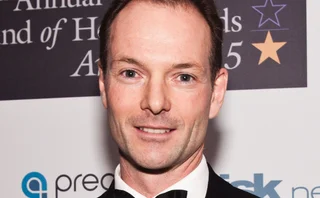
Regulation could be saviour of Europe’s FoHF business
While many moan about the EU’s AIFMD and other rules, one fund of hedge funds leader is optimistic the regulations will stimulate activity in Europe and bring assets back to the industry

Not many leaders of the hedge fund community in Europe openly embraced regulation of the industry after 2008. One individual, however, decided it was better to work with regulators and governments to ensure the best possible result for the industry as well as investors.
From when he began at Banque Privée Edmond de Rothschild Asset Management Switzerland in 1994 to the present, Alexandre Col has
Only users who have a paid subscription or are part of a corporate subscription are able to print or copy content.
To access these options, along with all other subscription benefits, please contact info@risk.net or view our subscription options here: http://subscriptions.risk.net/subscribe
You are currently unable to print this content. Please contact info@risk.net to find out more.
You are currently unable to copy this content. Please contact info@risk.net to find out more.
Copyright Infopro Digital Limited. All rights reserved.
As outlined in our terms and conditions, https://www.infopro-digital.com/terms-and-conditions/subscriptions/ (point 2.4), printing is limited to a single copy.
If you would like to purchase additional rights please email info@risk.net
Copyright Infopro Digital Limited. All rights reserved.
You may share this content using our article tools. As outlined in our terms and conditions, https://www.infopro-digital.com/terms-and-conditions/subscriptions/ (clause 2.4), an Authorised User may only make one copy of the materials for their own personal use. You must also comply with the restrictions in clause 2.5.
If you would like to purchase additional rights please email info@risk.net
More on Fund of funds
FoHFs – shrinking without trace?
Funds of hedge funds are struggling to attract investment more than the funds they invest in
Funds of hedge funds look to focus and diversify both at once
Concentration on largest holdings has grown but average holding size has shrunk
Best bespoke FoHF provider: Amundi Alternative Investments
Clients want quick-moving funds as volatility creeps up, says Amundi
Best advisory team; Best HNWI/private client FoHF provider: Goldman Sachs Asset Management
AIMS' chief investment officer worries about a credit sell-off in 2016
Best specialist FoHF under $500m over three years: Ayaltis Narrapuno Spectrum
Spectrum fund profits from exposure to credit via market-neutral equities
Best seeder: Tages Capital
Tages offers new funds capital, advice and product ideas
Best managed accounts platform: Deutsche AWM
Deutsche AWM's platform has embraced arbitrage strategies that others have not
Best Ucits-compliant FoHF: Credit Suisse Prima Multi-Strategy Fund
Ucits funds still pose operational risks, says Credit Suisse







